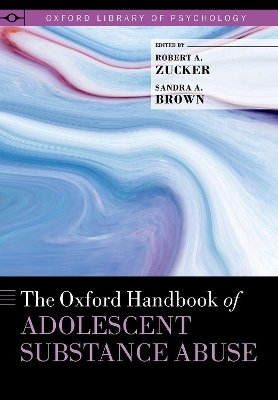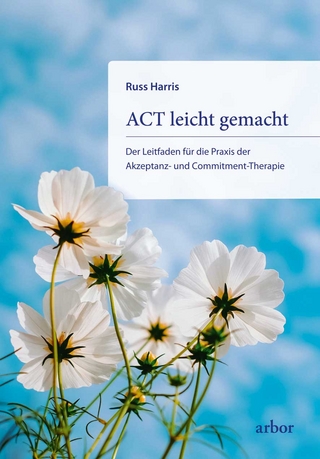
The Oxford Handbook of Adolescent Substance Abuse
Oxford University Press Inc (Verlag)
978-0-19-973566-2 (ISBN)
Drawing on the expertise of leading researchers from multiple fields, The Oxford Handbook of Adolescent Substance Abuse provides the most comprehensive summarization to date of current knowledge about substance abuse during life's most tumultuous developmental stage. The Handbook is organized into eight sections covering the literature on the developmental context of this life period, the epidemiology of adolescent use and abuse, similarities and differences in use, addictive potential, and consequences of use for different drugs; etiology and course as characterized at different levels of mechanistic analysis ranging from the genetic and neural to the behavioral and social. Two sections cover the clinical ramifications of abuse, and prevention and intervention strategies to most effectively deal with these problems. The last section addresses the role of social policy in framing the problem and in addressing it, and explores its potential role in alleviating it. This volume's authoritative treatment of these issues and the breadth of its coverage make it suitable as a compendium of what is currently known; at the same time, its level of detail provides a reference text and a jumping off place for researchers already at work in the field.
Robert A. Zucker is Professor in Psychiatry and Psychology at the University of Michigan, Director Emeritus of their Addiction Research Center and the Department of Psychiatry's Substance Abuse Section. His career focus has been the lifespan etiology of substance abuse and the development of early identification and intervention programming. He is internationally known for his research contributions to the understanding of alcoholism as a developmental disorder, and has been involved with its translational ramifications via consultancies at NIH and by developing substance abuse research infrastructure in Eastern Europe. He is a Steering Committee member and site PI for NIH's national ABCD study, author of over 300 publications and 11 books, and is recipient of the Research Society on Alcoholism's Distinguished Researcher Award. He is also past-President of the Society on Addiction Psychology. Sandra A. Brown, Vice Chancellor for Research and Distinguished Professor of Psychology and Psychiatry at the University of California, San Diego, is internationally recognized for developmentally focused alcohol and drug research. Her primary research focuses on the impact of alcohol and other drugs on human development, progression of substance involvement, and factors influencing transitions into and out of youth alcohol and drug problems. Her research yielded pioneering information on relapse, long-term outcomes, and effective treatment for youth. She has held numerous scientific leadership positions, with awards from NIH, APA and RSA. She has more than 35 grants and 350 publications and helped lead the national effort to establish screening and early intervention guidelines for youth. She co-directs the National Consortium on Alcohol and Neurodevelopment in Adolescence and Coordinating Center of the Adolescent Brain Cognitive Development study.
1. Introduction to the Field and the Issues
Robert A. Zucker and Sandra A. Brown
2. Substance Use in the Context of Adolescent Development
John Schulenberg, Julie Maslowsky, Megan E. Patrick, and Meghan Martz
3. A Developmental Perspective on Substance Involvement From Adolescence to Emerging Adulthood
Kristina M. Jackson
4. The Epidemiology of Substance Use Among Adolescents in the United States
Megan E. Patrick and Patrick M. O'Malley
5. Cultural Variations and Relevance to Etiology
Jorge Delva, Sandra L. Momper, Claudette L. Grinnell-Davis, and Mark B. Padilla
6. Cigarette Smoking and Nicotine Dependence in Adolescence
Mark G. Myers and Laura MacPherson
7. Adolescent Alcohol Use
Tammy Chung and Kristina M. Jackson
8. Marijuana Use and Abuse in Adolescence
Dana M. Litt, Jason R. Kilmer, Susan F. Tapert, and Christine M. Lee
9. The Drugs of Abuse: Similarities and Differences: Other (Illicit) Drugs of Abuse in Adolescence
Danielle E. Ramo and Christian Grov
10. Prescription Drug Abuse in Adolescence
Amelia M. Arria and Brittany A. Bugbee
11. The Neural Circuitry and Neurocognitive Development
Reagan R. Wetherill and Susan F. Tapert
12. A Developmental Biological Perspective of Adolescent Substance Abuse: Animal Models
Linda Patia Spear
13. Behavioral Genetics of Adolescent Substance Use and Abuse
Matt McGue and Brian M. Hicks
14. Behavioral Undercontrol: A Multifaceted Concept and Its Relationship to Alcohol and Substance Use Disorders
Michael Windle
15. An Early Emerging Internalizing Pathway to Substance Use and Disorder
Andrea M. Hussong, Julia Shadur, Alison R. Burns, Gabriela Stein, Deborah Jones, Jessica Solis, and Laura G. McKee
16. Adolescent Resilience: Promoting More Positive Outcomes Among Youth at Risk of Using and Abusing Substances
Noelle Hurd and Marc Zimmerman
17. Application of the Expectancy Concept to Substance Use
Sarah J. Peterson and Gregory T. Smith
18. Child and Adolescent Socialization Into Substance Use
John E. Donovan
19. Linking Peer Relationships to Substance Use Across Adolescence
Kelly L. Rulison, Megan E. Patrick, and Jennifer L. Maggs
20. Development of Sexual Relationships and Substance Use
Sonya B. Norman, Erin Harrop, Kendall C. Wilkins, Eric R. Pedersen, Ursula S. Myers, Aimee Chabot, and Carie Rodgers
21. Self-Regulation and Decision Making
Kristen G. Anderson and Kristen E. L. Briggs
22. Substance-Impaired Driving in Adolescence
Kayleigh N. McCarty and Denis M. McCarthy
23. Identity Development and Substance Use in Adolescence
Thomas A. Wills, Steve Sussman, and Meghan McGurk
24. Adolescent Substance Use and Co-Occurring Disorders
Jeffrey J. Wilson and Megan Janoff
25. Alcohol and Drug Use as Risk Factors for Delinquent Behavior Among Adolescents
Helene Raskin White, Courtney Cronley, and Padmini Iyer
26. Sleep Impairment
Mairav Cohen-Zion and Natali Svirsky
27. Medical Issues in Adolescent Substance Use: Background and Role of the Primary Care Physician
Miriam Schizer, Elissa R. Weitzman, and Sharon Levy
28. Adolescent Cultural Contexts for Substance Use: Intergroup Dynamics, Family Processes, and Neighborhood Risks
Seth J. Schwartz, Sabrina E. Des Rosiers, Jennifer B. Unger, and José Szapocznik
29. Assessing Adolescent Alcohol and Other Drug Abuse
Ken C. Winters, Tamara Fahnhorst, Andria Botzet, Randy Stinchfield, and Ali Nicholson
30. Prevention in School, Primary Care, and Community-Based Settings
Elizabeth J. D'Amico and Sarah W. Feldstein Ewing
31. Targeted Prevention Approaches
Eric F. Wagner and Nehama Lewis
32. Family-Based Treatments for Adolescent Substance Abuse: Advances Yield New Developmental Challenges
Maya M. Boustani, Craig E. Henderson, and Howard A. Liddle
33. Twelve-Step Approaches
John F. Kelly, Matthew J. Worley, and Julie Yeterian
34. Effective Inpatient and Outpatient Models of Treatment for Adolescents With Substance Use Disorders
Marianne Pugatch, John R. Knight, Sarah Copelas, Tatiana Buynitsky, and J. Wesley Boyd
35. Public Health Policy and Prevention of Alcohol, Tobacco, and Drug Problems
Harold D. Holder and Lawrence W. Green
36. Agenda for Future Research and Concluding Comments
Sandra A. Brown and Robert A. Zucker
| Erscheinungsdatum | 20.08.2019 |
|---|---|
| Reihe/Serie | Oxford Library of Psychology |
| Verlagsort | New York |
| Sprache | englisch |
| Maße | 257 x 180 mm |
| Gewicht | 1678 g |
| Themenwelt | Sachbuch/Ratgeber ► Gesundheit / Leben / Psychologie ► Psychologie |
| Geisteswissenschaften ► Psychologie ► Klinische Psychologie | |
| Geisteswissenschaften ► Psychologie ► Sucht / Drogen | |
| Medizin / Pharmazie ► Medizinische Fachgebiete ► Suchtkrankheiten | |
| ISBN-10 | 0-19-973566-2 / 0199735662 |
| ISBN-13 | 978-0-19-973566-2 / 9780199735662 |
| Zustand | Neuware |
| Haben Sie eine Frage zum Produkt? |
aus dem Bereich


